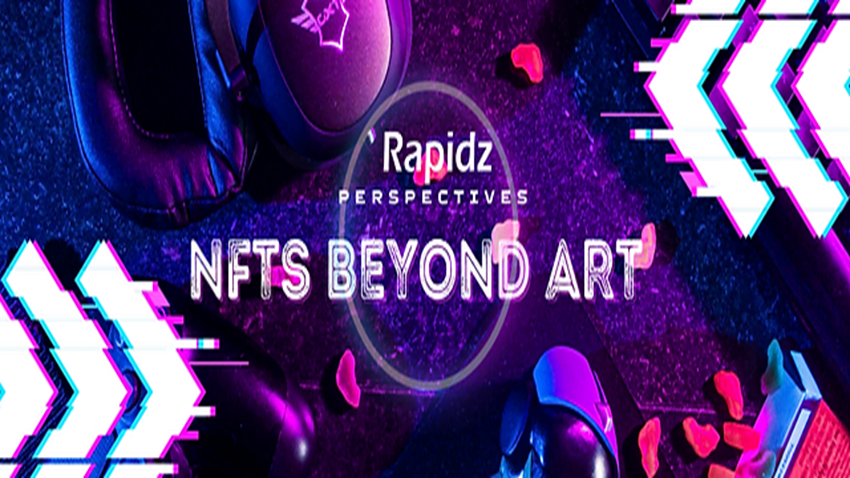Introduction
Non-fungible tokens, or NFTs, have been making headlines primarily for their impact on the art world. From digital artworks selling for millions to artists finding new ways to monetize their creativity, NFTs have revolutionized the art market. However, their potential extends far beyond art. This article delves into the fascinating applications of NFTs in gaming, real estate, music, fashion, education, sports, healthcare, and more, highlighting their transformative power across various industries.
Understanding NFTs
To fully grasp the scope of NFTs, it’s crucial to understand what they are and how they work. NFTs are unique digital assets verified using blockchain technology. Unlike cryptocurrencies such as Bitcoin, which are fungible and interchangeable, each NFT is distinct and cannot be replicated. This uniqueness lends itself to a wide array of applications, making NFTs highly versatile.
NFTs in Gaming
One of the most promising areas for NFT application is gaming. NFTs have the potential to revolutionize the gaming industry by providing true ownership of in-game assets. Players can buy, sell, and trade these assets on various marketplaces, creating a new economy within games. The play-to-earn model is also gaining traction, where players can earn NFTs through gameplay and sell them for real-world money. Popular NFT-based games like “Axie Infinity” and “CryptoKitties” have already shown the potential of this model, hinting at a future where gamers can make a living through play.
NFTs in Real Estate
NFTs are also making waves in the real estate sector, both virtual and physical. Virtual real estate involves buying and selling plots of land in digital worlds, like Decentraland and The Sandbox. These digital plots can appreciate in value, be rented out, or even host virtual events. On the physical side, NFTs can represent fractional ownership of real-world properties, making real estate investment more accessible. Platforms like Propy are pioneering this space, offering tokenized property sales and streamlining real estate transactions.
NFTs in Music and Entertainment
Musicians and entertainers are exploring NFTs to tokenize music albums, concert tickets, and exclusive content. This allows artists to sell directly to their fans, bypassing traditional intermediaries and earning more revenue. Fans benefit from owning rare digital collectibles and experiencing closer connections with their favorite artists. Musicians like Kings of Leon and Grimes have successfully launched NFT projects, paving the way for others in the industry.
NFTs in Fashion and Luxury Goods
The fashion industry is embracing NFTs to create digital fashion items and authenticate luxury goods. Brands can design digital clothing and accessories that consumers can wear in virtual worlds or display on social media. NFTs also help in verifying the authenticity and provenance of high-end products, combating counterfeiting. Companies like Gucci and Louis Vuitton are already experimenting with NFTs, showcasing their potential in fashion.
NFTs in Education
Educational institutions are leveraging NFTs to issue digital credentials and certifications. These NFTs serve as verifiable records of academic achievements, making it easier for employers to confirm qualifications. Additionally, NFTs can store and share academic records securely, ensuring privacy and preventing fraud. Institutions like MIT have started issuing blockchain-based diplomas, hinting at a broader adoption of this technology in education.
NFTs in Sports
Sports enthusiasts can engage with their favorite athletes and teams through NFTs. Sports memorabilia and collectibles, such as digital trading cards and highlight reels, are being tokenized, providing fans with unique ways to support their teams. Additionally, NFTs can grant access to exclusive experiences, like virtual meet-and-greets with athletes. Platforms like NBA Top Shot have popularized this concept, making sports NFTs a booming market.
NFTs in Healthcare
The healthcare industry is exploring NFTs for managing medical records and tokenizing health data. NFTs can securely store patient records, ensuring they are tamper-proof and easily accessible by authorized personnel. This can streamline data sharing between healthcare providers and enhance patient care. However, the use of NFTs in healthcare also raises concerns about privacy and data security, which need to be carefully addressed.
Environmental Concerns and Solutions
Despite their potential, NFTs have faced criticism for their environmental impact due to the high energy consumption of blockchain networks. However, the industry is actively seeking sustainable solutions, such as transitioning to proof-of-stake (PoS) consensus mechanisms and using eco-friendly blockchain platforms. Initiatives like Ethereum 2.0 aim to reduce the carbon footprint of NFTs, making them more environmentally sustainable.
Legal and Regulatory Aspects
The legal landscape for NFTs is still evolving, with numerous challenges and uncertainties. Intellectual property rights, ownership disputes, and regulatory compliance are critical issues that need to be addressed. Governments and regulatory bodies are beginning to take notice, with future regulations likely to shape the development and adoption of NFTs across industries.
Investment and Market Trends
The NFT market has seen explosive growth, attracting investors and enthusiasts alike. While NFTs offer lucrative opportunities, they also come with risks, including market volatility and potential scams. Investors need to conduct thorough research and stay informed about market trends to make wise investment decisions.
Technological Innovations
Advancements in blockchain technology are driving the evolution of NFTs. Improved interoperability, scalability, and user experience are crucial for the widespread adoption of NFTs. Projects focusing on these aspects, such as Layer 2 solutions and cross-chain compatibility, are paving the way for a more integrated and efficient NFT ecosystem.
Social Impact of NFTs
NFTs have the potential to democratize access to various assets and opportunities, fostering inclusivity and community building. They enable creators from diverse backgrounds to monetize their work and engage with global audiences. Additionally, NFTs are being used for philanthropic purposes, with proceeds from sales going to charitable causes, highlighting their potential for social good.
Conclusion
The applications of NFTs extend far beyond the art world, influencing various sectors such as gaming, real estate, music, fashion, education, sports, and healthcare. As technology evolves and adoption grows, NFTs are poised to revolutionize how we interact with digital and physical assets. While challenges remain, the future of NFTs looks promising, offering exciting possibilities for innovation and transformation across industries.
FAQs
- What are the main benefits of NFTs? NFTs provide unique digital ownership, verifiable authenticity, and the ability to trade and monetize digital assets across various platforms.
- How do NFTs affect traditional industries? NFTs are disrupting traditional industries by introducing new models for ownership, revenue generation, and fan engagement, thereby creating new opportunities and challenges.
- What are the environmental impacts of NFTs? NFTs have been criticized for their high energy consumption, but efforts are underway to adopt more sustainable practices and technologies, such as proof-of-stake (PoS) consensus mechanisms.
- Are NFTs a good investment? While NFTs offer lucrative opportunities, they also come with risks. Potential investors should conduct thorough research, understand the market, and consider the volatility and potential for scams.
- How can one get started with NFTs? To get started with NFTs, one should create a digital wallet, choose a marketplace, and familiarize themselves with the process of buying, selling, and creating NFTs.



